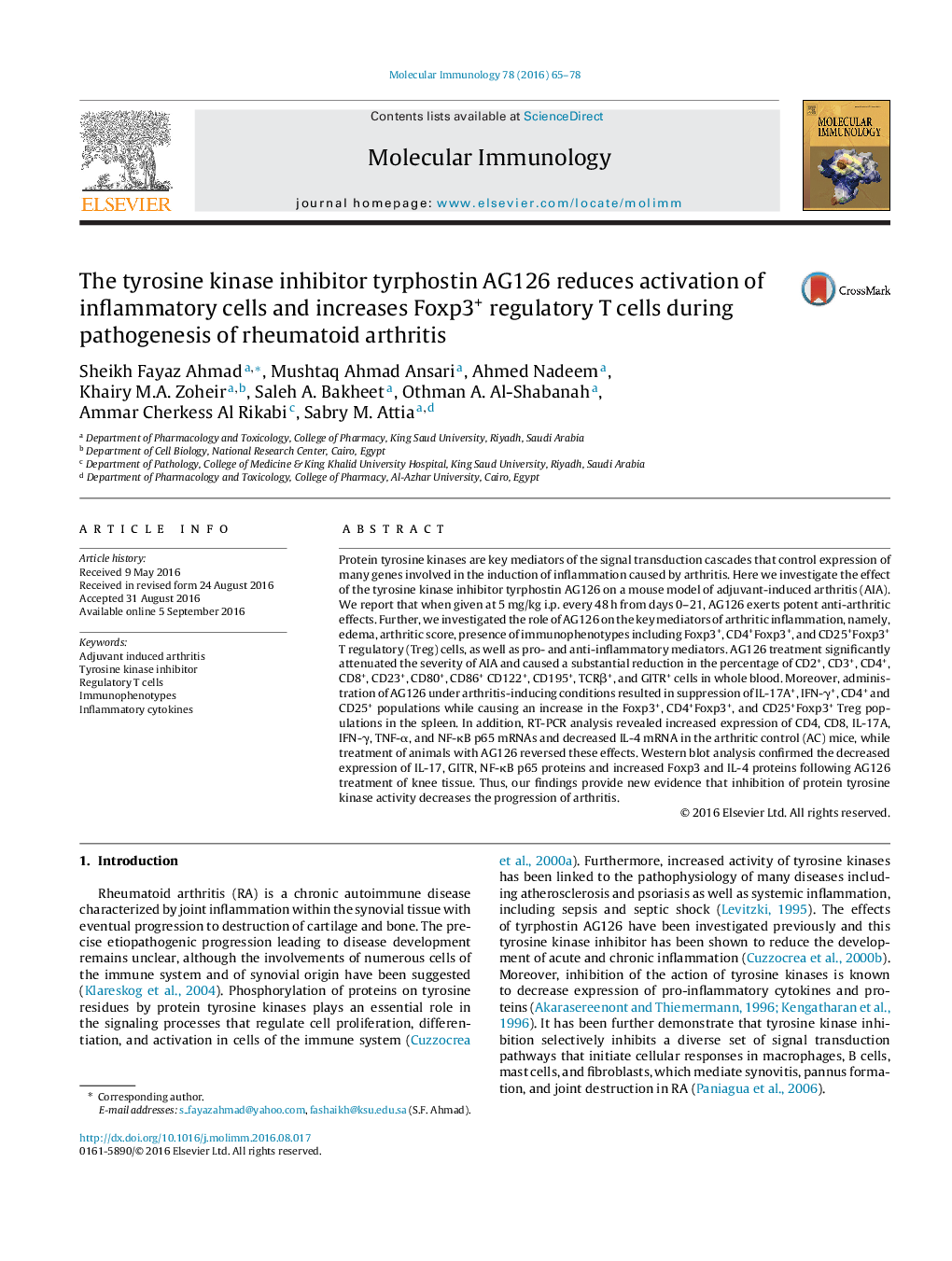| Article ID | Journal | Published Year | Pages | File Type |
|---|---|---|---|---|
| 2830509 | Molecular Immunology | 2016 | 14 Pages |
•We investigated the possible anti-arthritic effects of tyrphostin AG126.•AG126 reduces several T cell subsets while increasing T regulatory cells.•AG126 regulates serum Th1 and Th2 cytokines levels.•AG126 controls expression of pro and anti-inflammatory mediators at the mRNA level.•AG126 regulates protein expression of inflammatory mediators.
Protein tyrosine kinases are key mediators of the signal transduction cascades that control expression of many genes involved in the induction of inflammation caused by arthritis. Here we investigate the effect of the tyrosine kinase inhibitor tyrphostin AG126 on a mouse model of adjuvant-induced arthritis (AIA). We report that when given at 5 mg/kg i.p. every 48 h from days 0–21, AG126 exerts potent anti-arthritic effects. Further, we investigated the role of AG126 on the key mediators of arthritic inflammation, namely, edema, arthritic score, presence of immunophenotypes including Foxp3+, CD4+Foxp3+, and CD25+Foxp3+ T regulatory (Treg) cells, as well as pro- and anti-inflammatory mediators. AG126 treatment significantly attenuated the severity of AIA and caused a substantial reduction in the percentage of CD2+, CD3+, CD4+, CD8+, CD23+, CD80+, CD86+ CD122+, CD195+, TCRβ+, and GITR+ cells in whole blood. Moreover, administration of AG126 under arthritis-inducing conditions resulted in suppression of IL-17A+, IFN-γ+, CD4+ and CD25+ populations while causing an increase in the Foxp3+, CD4+Foxp3+, and CD25+Foxp3+ Treg populations in the spleen. In addition, RT-PCR analysis revealed increased expression of CD4, CD8, IL-17A, IFN-γ, TNF-α, and NF-κB p65 mRNAs and decreased IL-4 mRNA in the arthritic control (AC) mice, while treatment of animals with AG126 reversed these effects. Western blot analysis confirmed the decreased expression of IL-17, GITR, NF-κB p65 proteins and increased Foxp3 and IL-4 proteins following AG126 treatment of knee tissue. Thus, our findings provide new evidence that inhibition of protein tyrosine kinase activity decreases the progression of arthritis.
